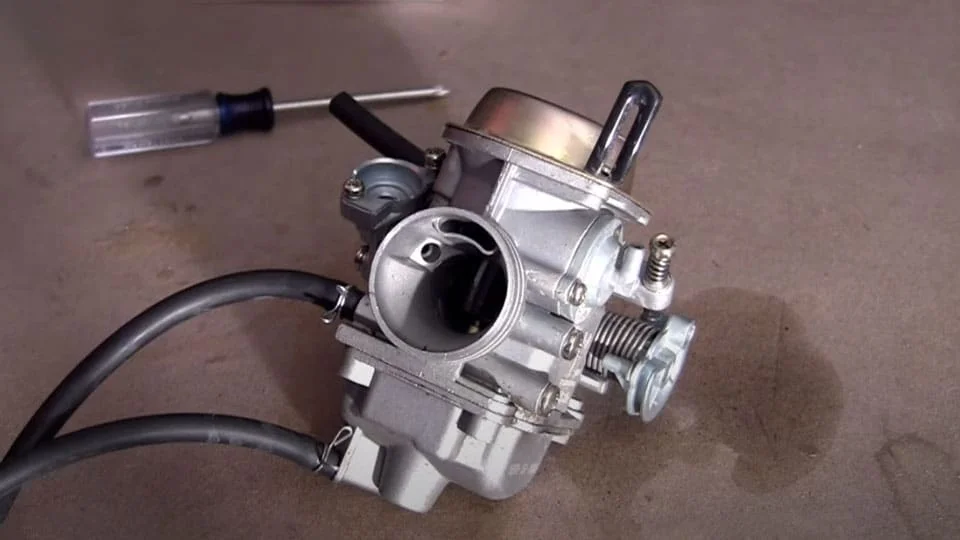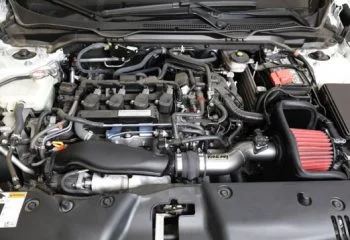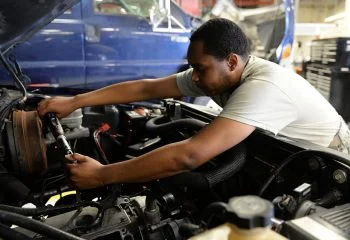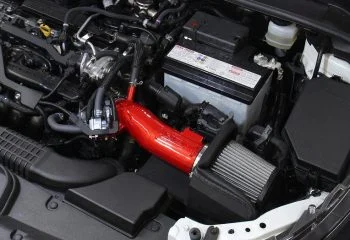If your carburetor is leaking gas from the air intake, it could be due to a number of different issues. One of the most common causes is a defective or worn-out gasket, which can allow fuel to leak out. Additionally, the rubber seals on some carburetors may have deteriorated over time and need to be replaced.
It’s also possible that the fuel line is blocked or clogged, which can cause air to be drawn in and mix with the fuel before being discharged. The carburetor should be inspected and repaired immediately if it is leaking gas from the air intake. It’s important to ensure that all components are properly sealed and secured before driving your car, as a leak could lead to an engine misfiring or even a fire.
What's in this post?
What is a Carburetor (Carb)?
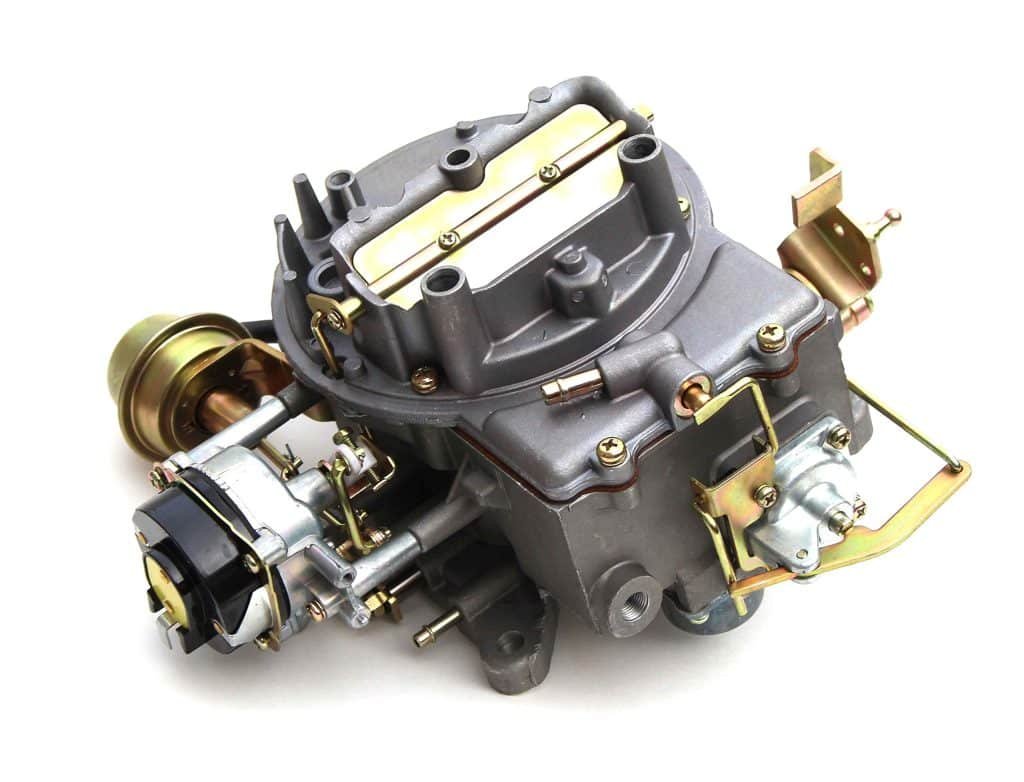
A carburetor (or carb) is a device that mixes air and fuel in the correct ratio for combustion in an internal combustion engine. The carburetor consists of several components, including jets, needles, and valves. It also includes a float chamber to regulate the flow of fuel into the intake manifold.
The carburetor works by using atmospheric pressure to create an air-fuel mixture that is then drawn into the engine via the intake manifold. This mixture allows for optimum combustion and, in turn, better engine performance.
The carburetor can be adjusted to optimize fuel economy or power output, depending on the needs of the driver. Carburetors are still used today in some older models of cars, but they have largely been replaced with fuel injection systems.
How does a carburetor work?
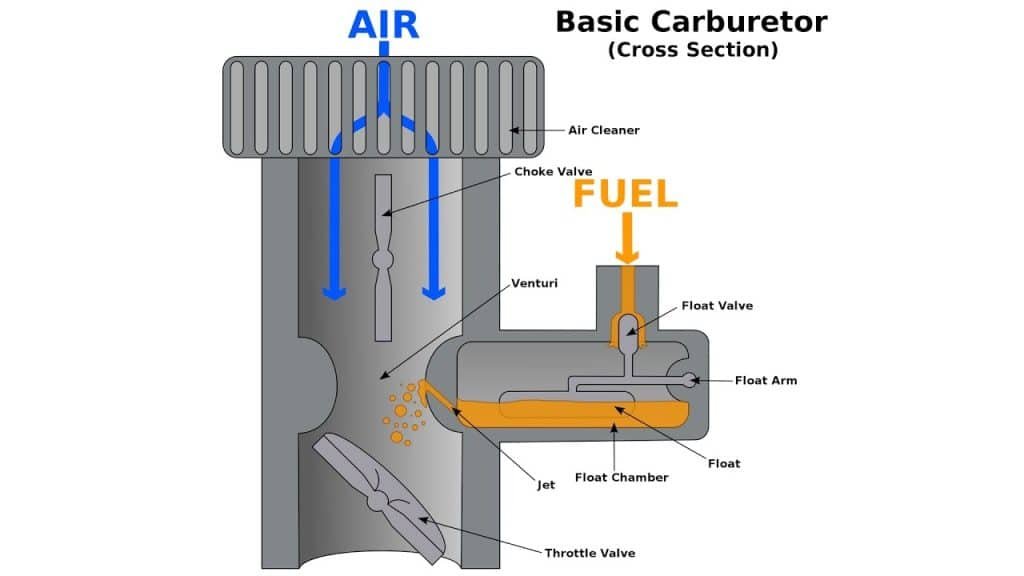
The way a carburetor works is by taking air from the atmosphere and mixing it with fuel in order to create an optimized mixture for combustion. The mixture is then drawn into the engine, where it is burned in order to power the vehicle. The ratio of air and fuel can be adjusted using jets, needles, and valves, which allow for different degrees of acceleration or fuel economy.
The carburetor also includes a float chamber that helps regulate the flow of fuel into the intake manifold, ensuring an even mix of air and fuel. With proper maintenance and adjustment, a carburetor can provide reliable performance for many years to come.
In short, a carburetor is a device that mixes air and fuel in the correct ratio for combustion in an internal combustion engine. It works by using atmospheric pressure to create an air-fuel mixture that is then drawn into the engine via the intake manifold.
The carburetor can be adjusted to optimize fuel economy or power output depending on the needs of the driver, and it also includes a float chamber for regulating fuel flow.
While carburetors have largely been replaced by fuel injection systems in newer cars, they remain a reliable option for older models. With the right maintenance and adjustments, a carburetor can provide reliable performance for many years to come.
If you want to upgrade your car’s instake system, here are some best performance cold air intake out there.
What signs might indicate a gas leak in a carburetor?
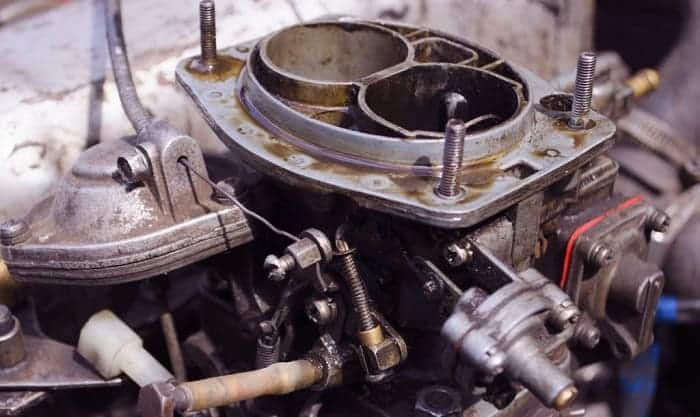
The symptoms of a carburetor that is leaking gas include a strong smell of gasoline in the engine compartment, visible pools of fuel around the carburetor, and reduced fuel economy. Additionally, if your car is equipped with an air intake tube, you may notice black smoke coming out of it when starting or running the engine.
If any of these symptoms are present, your carburetor should be inspected and repaired immediately to prevent further damage. It’s important to note that a leaking carburetor can also cause the engine to run rough or stall due to a lack of fuel.
Why is the air intake of my carburetor leaking gas?
If your carburetor is leaking gas from the air intake, it could be due to a number of different issues. One of the most common causes is a defective or worn-out gasket, which can allow fuel to leak out. Additionally, the rubber seals on some carburetors may have deteriorated over time and need to be replaced.
It’s also possible that the fuel line is blocked or clogged, which can cause air to be drawn in and mix with the fuel before being discharged. The carburetor should be inspected and repaired immediately if it is leaking gas from the air intake. It’s important to ensure that all components are properly sealed and secured before driving your car, as a leak could lead to an engine misfiring or even a fire.
In addition to these more common causes, there could also be underlying issues that are causing your carburetor to leak from the air intake. For instance, the float may be stuck or adjusted too low, which can allow fuel to pass into the engine at a higher rate than intended. The jets and needles may also need to be cleaned or adjusted in order to properly regulate the air/fuel mixture.
Lastly, the carburetor may be damaged due to a buildup of sediment or corrosion, which can cause fuel to leak out. Once you’ve identified the cause of your leaking carburetor, it is important to have it inspected and repaired as soon as possible in order to prevent any further damage from occurring. This will help you save money on fuel costs and keep you safe on the road.
How can I fix a carburetor that is leaking gas?
The first step to fixing a carburetor that is leaking gas is to identify the cause. If the gasket or seals have worn out, they should be replaced. Additionally, the fuel line may need to be unclogged or cleaned in order to prevent any air from being drawn into the system and mixing with the fuel before it can enter the engine.
The jets and needles may also need to be adjusted or cleaned in order to properly regulate the air/fuel mixture. Lastly, if sediment or corrosion have built up on the carburetor, it should be cleaned and inspected for any signs of damage.
Once you’ve identified the cause of your leaking carburetor, it is important to have it inspected and repaired as soon as possible in order to prevent any further damage from occurring. This may require the services of a qualified mechanic, depending on the complexity of the issue.
More to learn about air intake: Does a Cold Air Intake Void Warranty?
FAQs
Q: When a carburetor leaks gas, is it safe to drive?
A: No, it is not safe to drive with a carburetor that is leaking gas. A leaking carburetor can cause engine misfiring or even a fire due to the increased amount of fuel entering the engine.
Moreover, if you are driving and your carburetor starts to leak, it could cause heavy smoke from the exhaust system that can be dangerous for both you and other drivers on the road. As such, it is important to have a leaking carburetor inspected and repaired as soon as possible in order to prevent any further damage from occurring.
Furthermore, if you are driving with a leaking carburetor, it can lead to significantly increased fuel consumption, which can be costly over time. Therefore, it is best to avoid driving until the issue has been fixed.
By taking the time to properly inspect and repair your carburetor, you can ensure that it remains in good working condition for many years to come. With proper maintenance and care, you can keep your car running smoothly and safely while saving money on fuel costs.
Q: What are the consequences of a carburetor that is leaking gas?
A: The consequences of a carburetor that is leaking gas can be serious. Leaking fuel from the air intake can cause engine misfiring, which can lead to decreased performance or even damage to your vehicle’s engine. Additionally, if you are driving with a leaking carburetor, it can result in increased fuel consumption and more frequent trips to the pump. This can be costly over time and can also be damaging to the environment.
Conclusion
In conclusion, a carburetor that is leaking gas from the air intake can be dangerous and should be inspected and repaired as soon as possible. Leaking fuel can cause engine misfiring, increased fuel consumption, smoke from the exhaust system, and even a fire if left unrepaired.
Taking the time to properly inspect and repair your carburetor will help you save on fuel costs and keep you safe on the road. With proper maintenance and care, you can ensure that your carburetor remains in good working condition for many years to come. By following these steps, you can enjoy a safe and reliable driving experience for years to come.

